Dyson Cyclone V10 Absolute Cordless Vacuum Cleaner (Black)
Dyson Cyclone V10 Absolute (Blue/Nickel) cordless vacuum cleaner. Efficient filtration captures allergens. Free three tools and 2-year warranty on all cordless vacuum cleaners.
Drives more dirt from carpets.
The Torque drive cleaner head– strong pick up performance across all surfaces. With a DC motor housed within the brush bar, it transfers torque more efficiently, to dig bristles deeper into carpet and dislodge more dirt. Torque drive cleaner head provides up to 35 minutes of fade-free run time (in Suction mode I).
Gentle on hard floors, tough on dirt.
Engineered with soft woven nylon and anti-static carbon fiber, for hard floors. Soft roller cleaner head provides up to 40 minutes of fade-free run time (in Suction mode I).
Key technologies
Powered by the Dyson digital motor V10
Even stronger suction to pick up more dust and debris.⁺⁺
14 cyclones
14 cyclones generate forces of more than 79,000g to fling microscopic particles – such as pollen and bacteria – into the bin.
Fade-free power
The seven-cell, nickel-cobalt-aluminum battery has the fade-free power to clean here, there and everywhere around your home.
Whole-machine filtration
The fully-sealed filtration system traps 99.99% of particles as small as 0.3 microns – expelling cleaner air.‡
Acoustically engineered
Designed to absorb vibrations and dampen sound, to keep sound levels down.
In-line configuration
The motor, bin and cyclone are aligned, so air is drawn into the cyclones in a straight line – creating 20% more suction power than the Dyson V8™ vacuum cleaner.
Additional information
| Product Height x Length x Width (in) | 9.5 x 49.2 x 10.1 |
|---|---|
| Cleaner head | Torque drive cleaner head |
| Charge time | 3.5 hrs |
| Run time | Up to 60* min |
| Cyclone technology | 14 concentric array cyclones |
| Filtration | Advanced whole machine filtration |
| Bin volume | 0.2 gallon |
| Weight | 5.9 lb |

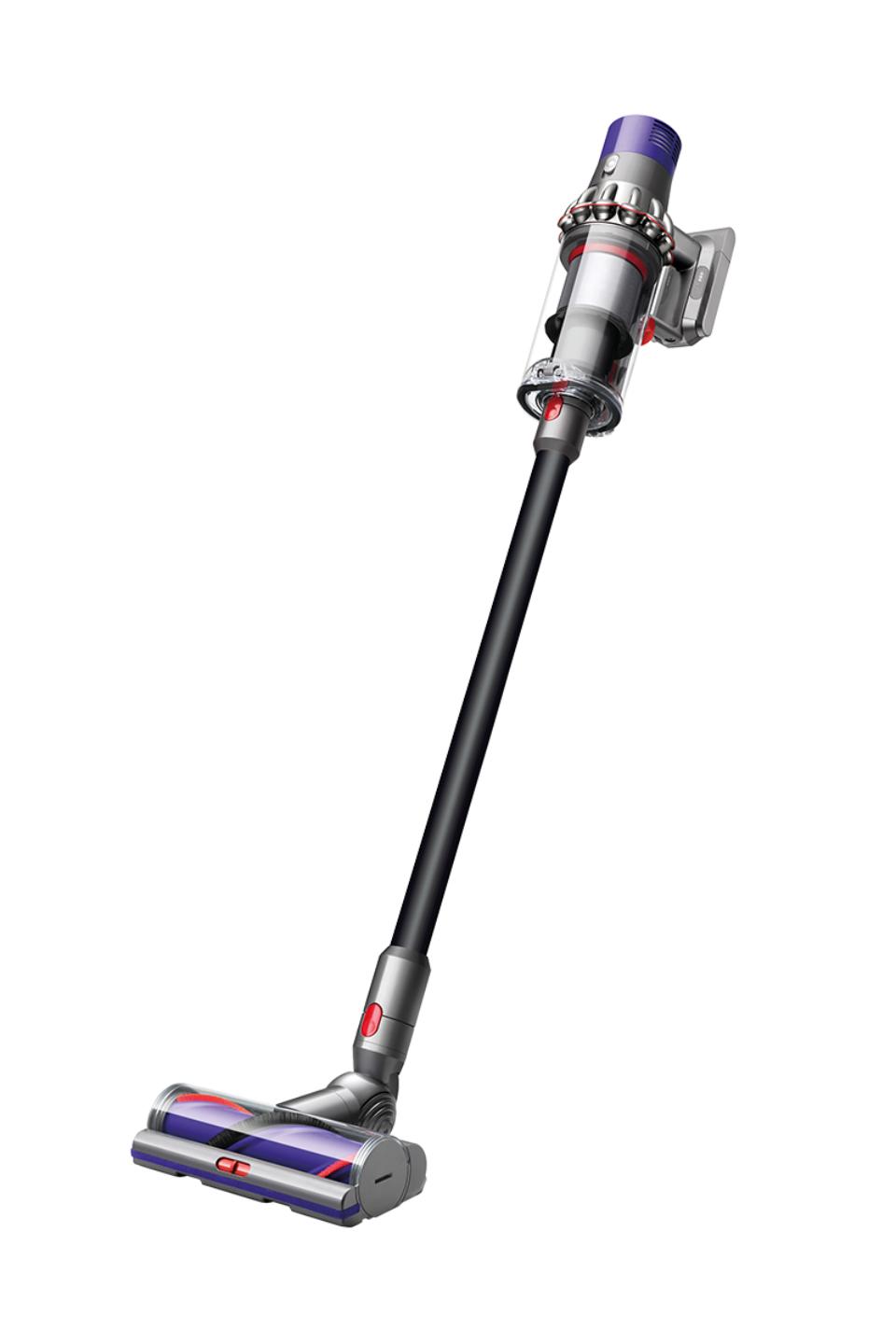
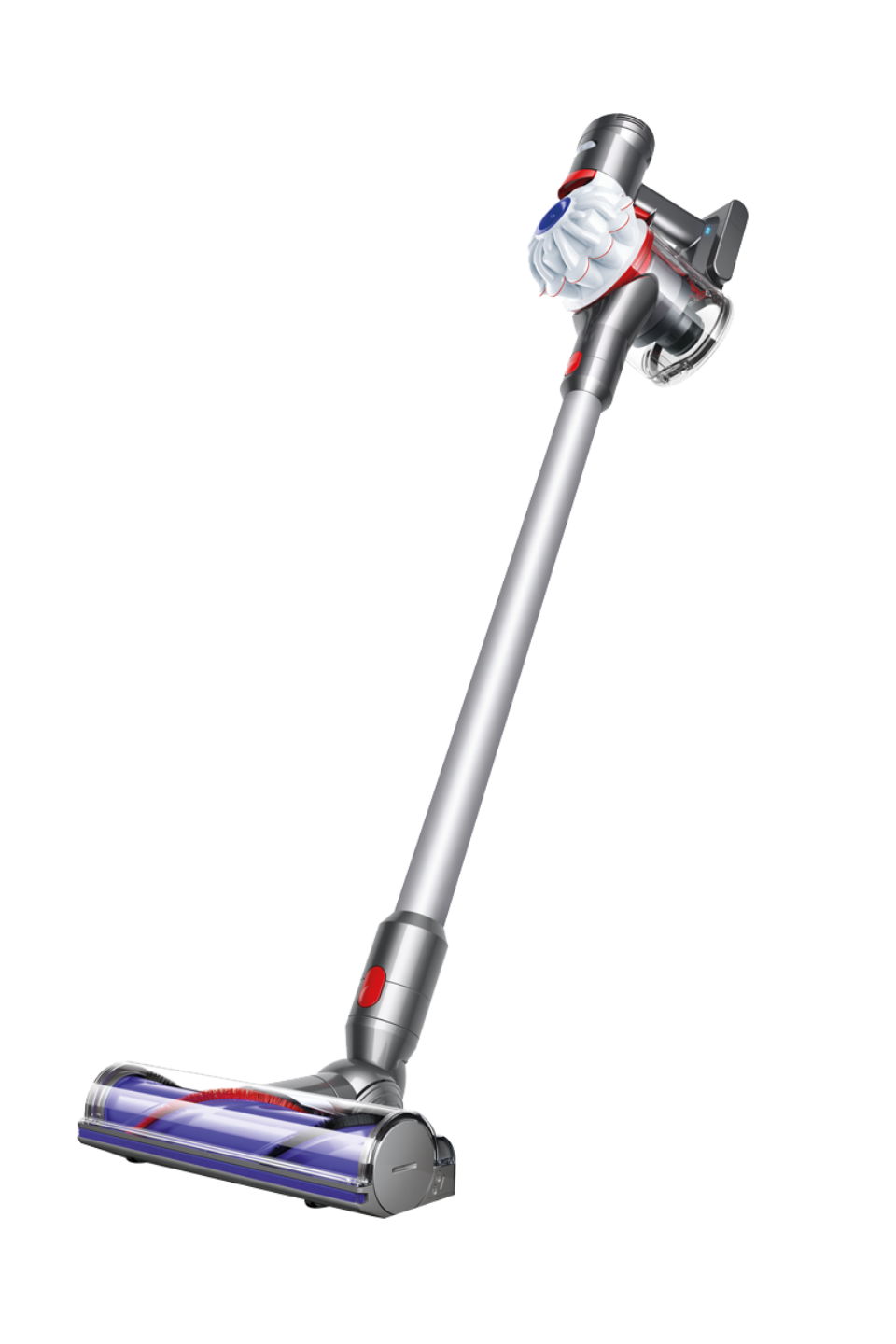
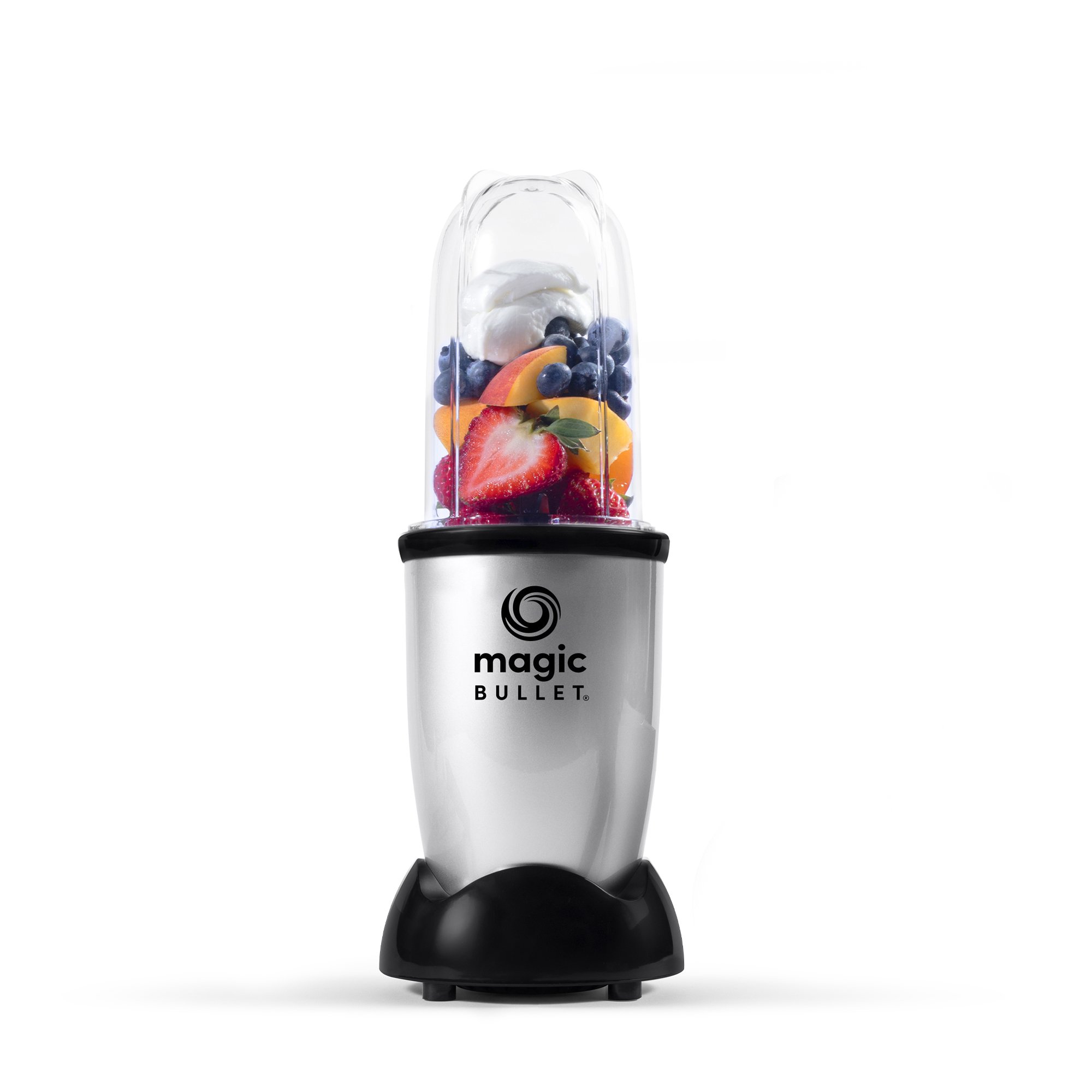
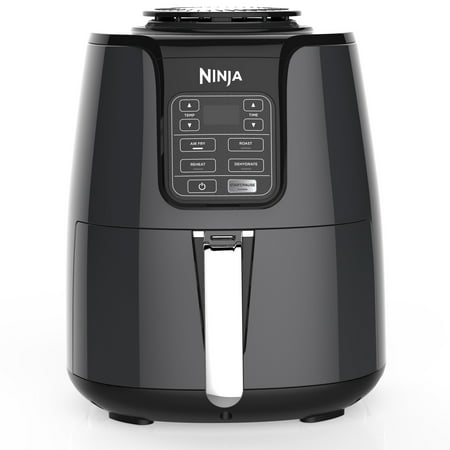
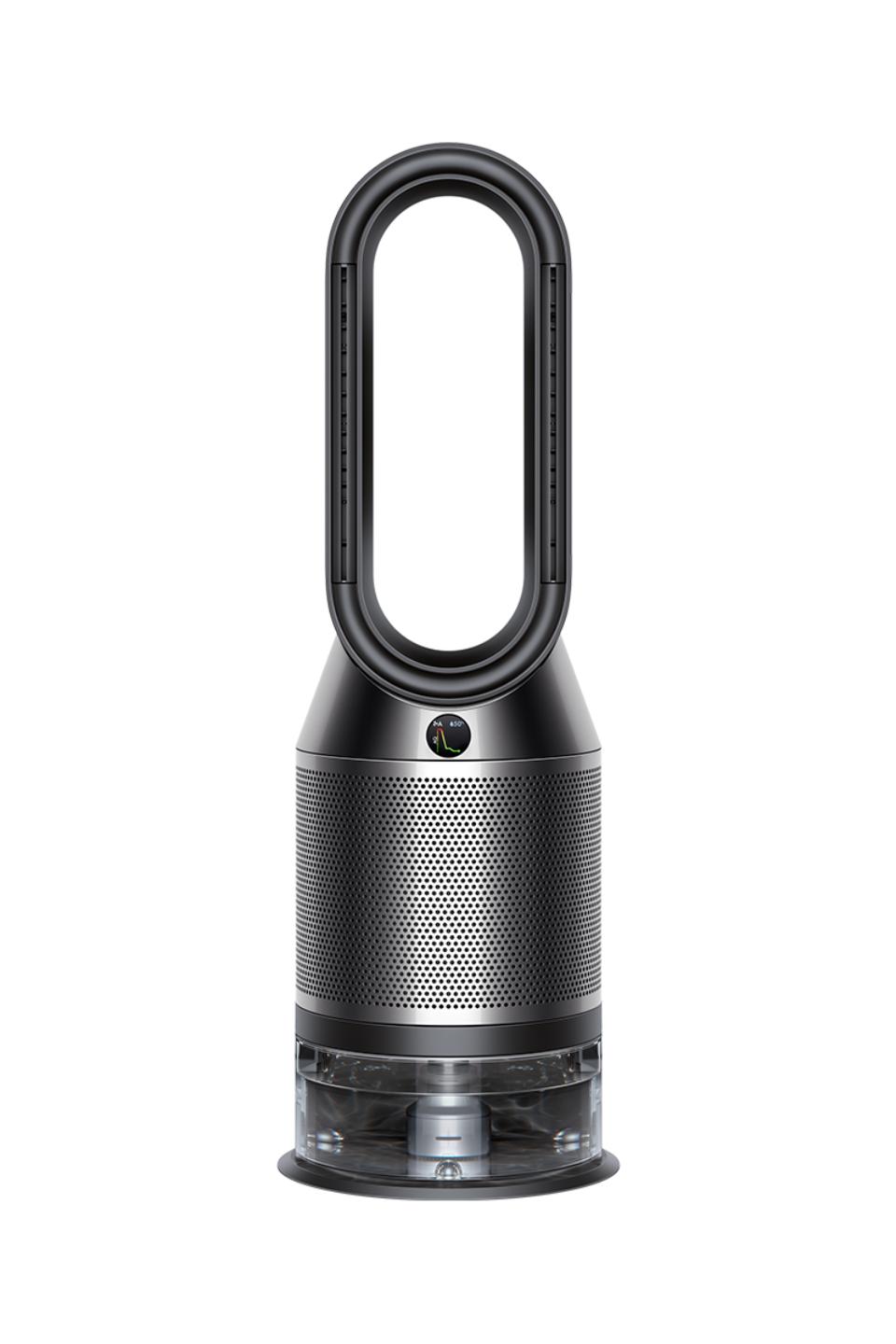
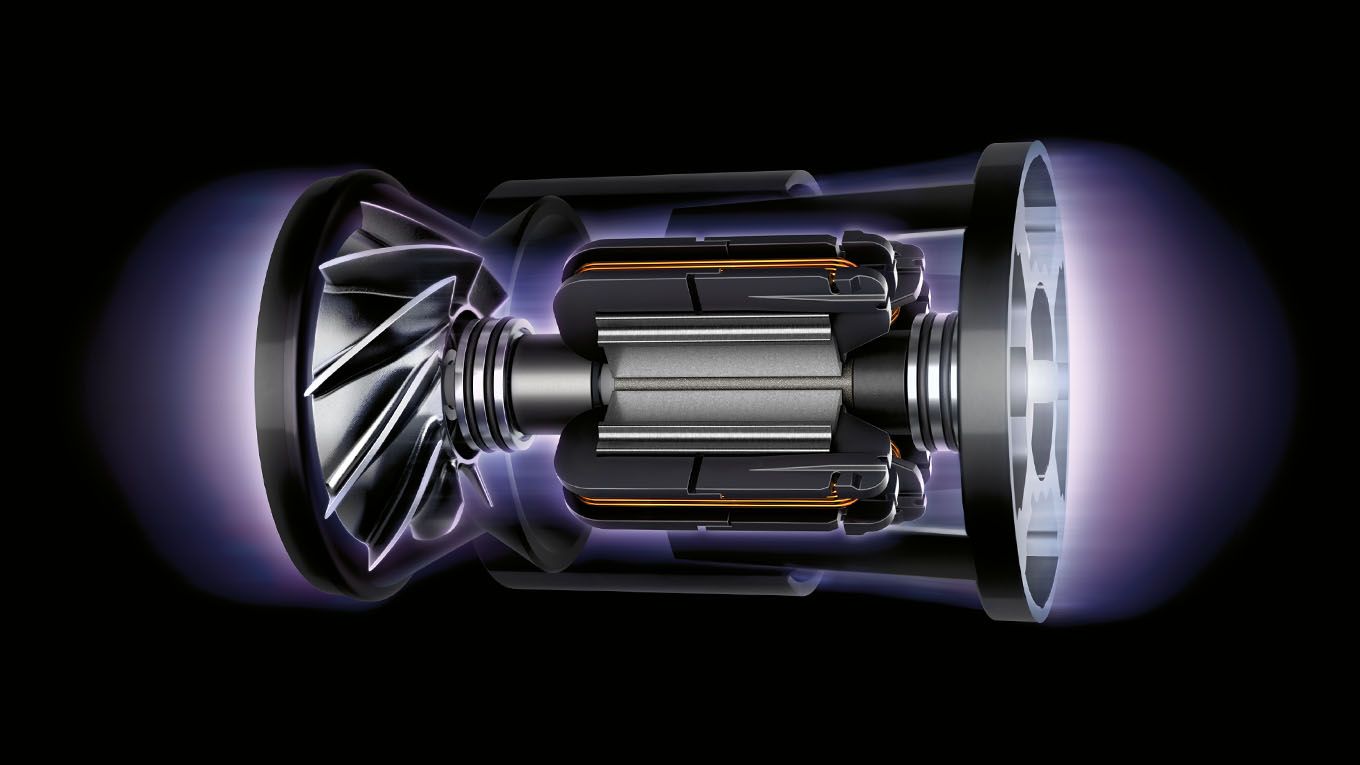





by Freak
This vacuum is the most incredible vacuum I’ve ever own. I am a self-proclaimed vacuum expert – when I was looking for a new vacuum I did a ton of research. It is hard to find something that has great suction but ALSO is cordless. My Dyson works great on hardwood floors as well as carpet. I am constantly amazed at how much dirt and dust it picks up. I have a golden retriever so there is a constant influx of dog hair in my house but I am able to get it up so quickly with the Dyson. Although it is a pretty penny, this vacuum is worth every cent and I’d buy it 1000x over.
by Elisa
It’s the most powerful vacuum we’ve ever owned. It’s light and fun to use, and it can reach where it’s hard to reach for other types of vacuum. It’s extremely handy for quick touch up cleaning, without the hassle of getting the vacuum out, plugging it in, etc. Great quality!
by Danielle
I love my V10 its quiet and nothing is more convenient than not having a cord. You don’t get that dust snell like some other vacuums. This Vacuum is a winner.
by James
We have been very pleased with this purchase. The convenience of having a cordless vacuum make quick clean-ups easy. Extremely satisfied with battery life and performance. We have not experienced any of the problems mentioned in the negative reviews.
by Michael
Makes life just that much easier! Love this cordless vacuum.
by Robert
Love this machine so convenient and easy to use. Most of all I cant believe how well it picks up dog hair from my rugs and hard wood floor.
by Scott
First Dyson and think its worth the price, amazed by the performance, would recommend to a friend.
by Athens
If you are looking to make your life easier and cleaner, definitely buy this vacuum. I enjoy using it. Highly recommended!
by Merfinol
I didn’t know my carpet was so dirty until I first used my Dyson. I just love it. The only thing I wish they could work on is the trigger to have it on. I wish it could stay on without me holding it because after a while it begins to hurt. Nevertheless I just love it! Would definitely recommend it!
by Michael
This vacuum is incredible. We bought it to try and keep up with the dog hair from our two hounds. Well, it’s doing what we want it to do. The suction is unbelievable. Not only does it suck up the dog hair, it sometimes tries to take the wall to wall carpet too.
by David
I have owned this vacuum for over 2 years. Best investment ever.
by Andrew
For years I’m using cordless Dyson vacuums. I own three of them for every level of the house. This is a great vacuum. Works great on long cat hair! It’s very powerful and easy to use. Would not want to be without it.